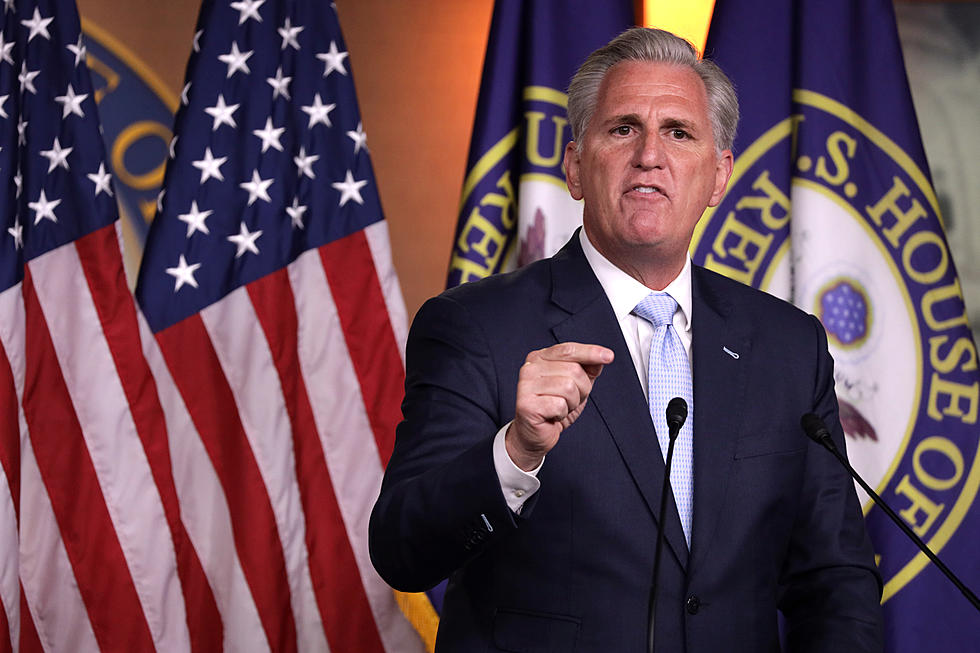
AP Source: Biden to Ban Russian Oil Imports over Ukraine War
By ZEKE MILLER, MIKE BALSAMO and JOSH BOAK
WASHINGTON (AP) — President Joe Biden has decided to ban Russian oil imports, toughening the toll on Russia’s economy in retaliation for its invasion of Ukraine, according to a person familiar with the matter.
The move follows pleas by Ukrainian President Volodmyr Zelenskyy to U.S. and Western officials to cut off the imports, which had been a glaring omission the massive sanctions put in place on Russia over the invasion. Energy exports have kept a steady influx of cash flowing to Russia despite otherwise severe restrictions on its financial sector.
Biden was set to announce the move as soon as Tuesday, the person said, speaking on the condition of anonymity to discuss the matter before an announcement. The White House said Biden would speak Tuesday morning to announce “actions to continue to hold Russia accountable for its unprovoked and unjustified war on Ukraine.”
The U.S. will be acting alone, but in close consultation with European allies, who are more dependent on Russian energy supplies. Natural gas from Russia accounts for one-third of Europe’s consumption of the fossil fuel. The U.S. does not import Russian natural gas.
Biden had explained his reluctance to impose energy sanctions at the outset of the conflict two weeks ago saying that he was trying “to limit the pain the American people are feeling at the gas pump.”
The news of his decision Tuesday was first reported by Bloomberg.
Before the invasion, Russian oil and gas made up more than a third of government revenues. Global energy prices have surged after the invasion and have continued to rise despite coordinated releases of strategic reserves, making Russian exports even more lucrative.
The U.S. and international partners have sanctioned Russia’s largest banks, its central bank and finance ministry, and moved to block certain financial institutions from the SWIFT messaging system for international payments.
But the rules issued by the Treasury Department allow Russian energy transactions to keep going through non-sanctioned banks that are not based in the U.S. in an effort to minimize any disruptions to the global energy markets.
Inflation, at a 40-year peak and fueled in large part by gas prices, has hurt Biden politically with voters heading into the November elections.
The sanctions created a possible trade-off for the president between his political interests at home and abroad. By invading Ukraine, Russia has potentially fed into the supply chain problems and inflation that have been a crucial weakness for Biden, who now is trying to strike a balance between penalizing Putin and sparing American voters.
Biden specifically highlighted the Russian energy carve-outs as a virtue because they would help to protect U.S. families and businesses from higher prices.
“Our sanctions package we specifically designed to allow energy payments to continue,” he said.
Restricting the world’s largest exporter of natural gas and second-largest exporter of oil, after Saudi Arabia, could hurt the unity that U.S. officials say is key to confronting Putin.
EXPLAINER: What would happen if the US banned Russian oil?
By MATTHEW DALY and CATHY BUSSEWITZ
WASHINGTON (AP) — As Russia has intensified its war on Ukraine, killing civilians and triggering a mass refugee crisis, some U.S. officials across the political spectrum have called for a ban on imports of Russian fuel. Such a ban, they say, would be the best — perhaps only — way to force Moscow to pull back.
A full embargo would be most effective if it included European allies, which are also desperate to stop the violence in Ukraine and the danger Moscow poses to the continent. Yet it’s far from clear that Europe would take part in a total embargo.
Unlike the United States, Europe is deeply reliant on energy it imports from Russia. While the U.S. could replace the relatively small amount of fuel it receives from Moscow, Europe could not, at least not anytime soon.
Here is a deeper look:
WILL THERE BE A BAN ON RUSSIAN OIL?
What’s more, any curbs on Russian oil exports would send already skyrocketing oil and gasoline prices ever higher on both continents and further squeeze consumers, businesses, financial markets and the global economy.
Amid rising gasoline prices in the U.S. — the average price has topped $4 a gallon for the first time since 2008 — the Biden administration faces growing pressure to impose further sanctions on Russia, including a ban on oil imports. No decision has yet been made.
For now, a broad U.S.-European ban appears elusive. On Monday, German Chancellor Olaf Scholz made clear that his country, Europe’s single-largest consumer of Russian energy, has no plans to join in any ban. In response, U.S. Deputy Secretary of State Wendy Sherman hinted that the U.S. could act alone or with a smaller group of allies.
“We have not been completely identical on all of the sanctions,” Sherman said. “Not every country has done exactly the same thing, but we have all reached a threshold that is necessary to impose the severe costs that we have all agreed to.”
Though U.S. Secretary of State Antony Blinken has raised the possibility of a ban on imported Russian oil, Sherman noted, “he also said that we have to maintain a supply of oil,” perhaps through other means, to stabilize prices.
Even if a ban were enacted, the Biden administration and Congress “remain laser-focused on bringing down the higher energy costs for American families and our partners stemming from Putin’s invasion,” House Speaker Nancy Pelosi said.
Pelosi, who has expressed support for a U.S. ban on Russian oil, nevertheless also cited Biden’s action in leading U.S. allies to release 60 million barrels of oil from strategic reserves, including 30 million barrels from U.S. reserves, to try to stabilize global markets.
WHAT HAPPENS IF THE U.S. ACTS ALONE?
If the U.S. alone were to ban imports of Russian oil and refined products, the impact on Moscow would likely be minimal. The United States imports a small share of Russia’s oil exports and doesn’t buy any of Moscow’s natural gas.
The United States imports about 100,000 barrels a day from Russia, only about 5% of Russia’s crude oil exports, according to Rystad Energy. Last year, roughly 8% of U.S. imports of oil and petroleum products came from Russia.
The U.S. could replace Russian crude with imports from Saudi Arabia and the United Arab Emirates. For its part, Russia might find alternative buyers for that fuel, perhaps in China or India. Such a step “would introduce massive inefficiency in the market,” which escalates prices, said Claudio Galimberti, senior vice president of analysis at Rystad Energy.
Yet if Russia were shut off from the global market, Galimberti said, rogue countries such as Iran and Venezuela might be “welcomed back” as sources of oil. Such additional sources could, in turn, potentially stabilize prices.
A team of Biden administration officials were in Venezuela over the weekend to discuss energy and other issues, White House press secretary Jen Psaki said. Officials discussed “a range of issues, including certainly energy security,″ Psaki said.
HOW COULD A RUSSIAN OIL BAN AFFECT PRICES?
A month ago, oil was selling for about $90 a barrel. Now, prices are surging past $120 a barrel as buyers shun Russian crude, with many refiners fearing that sanctions could be imposed in the future. They worry about being left with oil they couldn’t resell as gasoline if sanctions were imposed in the near future.
Shell said Tuesday that it would stop buying Russian oil and natural gas and shut down its service stations, aviation fuels and other operations there, days after Ukraine’s foreign minister criticized the energy giant for continuing to buy Russian oil.
Energy analysts warn that prices could go as high to $160 or even $200 a barrel for crude oil if oil sanctions are imposed by the West or if buyers continue shunning Russian crude.
Oil prices that high could send an average gallon of U.S. gasoline past $5 a gallon, a scenario that Biden and other political figures are desperate to avoid.
ARE RUSSIAN IMPORTS ALREADY FALLING?
The U.S. oil industry has said it shares the goal of reducing reliance on foreign energy sources and is committed to working with the Biden administration and Congress. Even without sanctions, some U.S. refiners have severed contracts with Russian companies. Imports of Russian crude oil and products have tumbled.
“Our industry has taken significant and meaningful steps to unwind relationships” with Russia and voluntarily limit Russian imports, said Frank Macchiarola, senior vice president of the American Petroleum Institute, the oil and gas industry’s largest lobbying group.
Preliminary data from the U.S. Energy Department shows imports of Russian crude dropped to zero in the last week in February.
The petroleum institute hasn’t taken a formal stance on legislation to ban Russian oil imports. But it says it would comply with any restrictions imposed.
WILL EUROPE GO ALONG?
A ban on Russian oil and natural gas would be painful for Europe. Russia provides about 40% of Europe’s natural gas for home heating, electricity and industry uses and about a quarter of Europe’s oil. European officials are looking for ways to reduce their dependence, but it’s going to take time.
Russian Deputy Prime Minister Alexander Novak underlined that urgency, saying Russia would have “every right” to halt natural gas shipments to Europe through the Nord Stream 1 pipeline in retaliation for Germany halting the parallel Nord Stream 2 pipeline, which was not yet operating. He added that “we have not taken this decision” and that “no one would benefit from this.” It was a change from earlier Russian assurances that they had no intention of cutting off gas to Europe.
Oil is easier to replace than natural gas. Other countries could increase production of oil and ship it to Europe. But much oil would have to be replaced, and this would drive up prices even more because the oil would likely have to travel farther.
Replacing the natural gas that Russia provides to Europe is likely impossible in the short term. Most of the natural gas Russia provides to Europe travels through pipelines. To replace it, Europe would mostly import liquefied natural gas, known as LNG. The continent doesn’t have enough pipelines to distribute gas from coastal import facilities to farther reaches of the continent.
In January, two-thirds of American LNG exports went to Europe. Some ships filled with LNG had been heading to Asia but turned around to go to Europe because buyers there offered to pay higher prices, according to S&P Global Platts.
While U.S. oil and gas producers could drill for more natural gas, its export facilities are already operating at capacity. Expanding those facilities would take years and billions of dollars.
___
Bussewitz reported from New York. AP writer Aamer Madhani contributed to this report.
More From News Talk 96.5 KPEL









